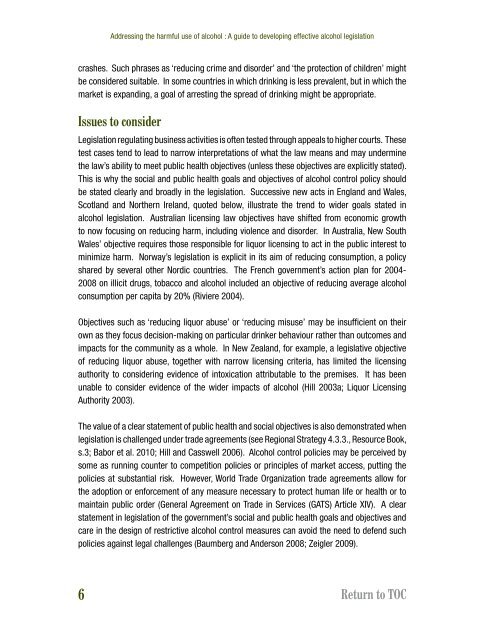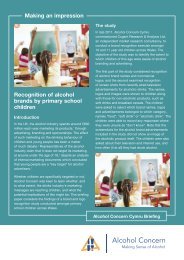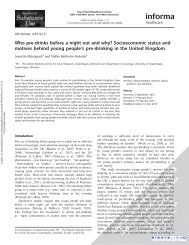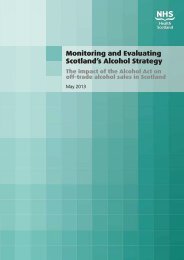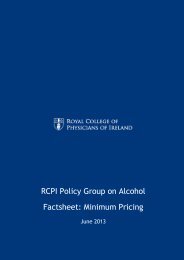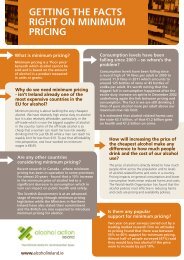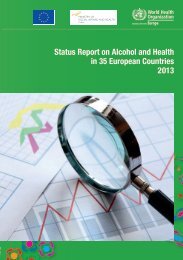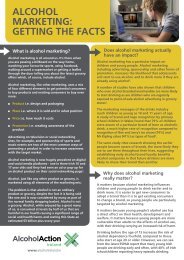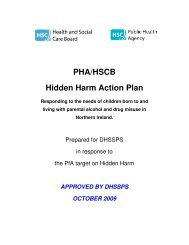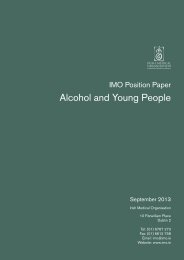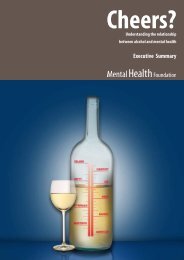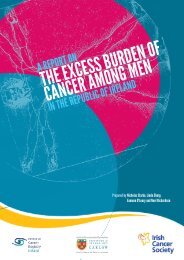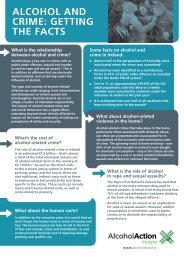Addressing the harmful use of alcohol - WHO Western Pacific Region
Addressing the harmful use of alcohol - WHO Western Pacific Region
Addressing the harmful use of alcohol - WHO Western Pacific Region
You also want an ePaper? Increase the reach of your titles
YUMPU automatically turns print PDFs into web optimized ePapers that Google loves.
<strong>Addressing</strong> <strong>the</strong> <strong>harmful</strong> <strong>use</strong> <strong>of</strong> <strong>alcohol</strong> : A guide to developing effective <strong>alcohol</strong> legislation<br />
crashes. Such phrases as ‘reducing crime and disorder’ and ‘<strong>the</strong> protection <strong>of</strong> children’ might<br />
be considered suitable. In some countries in which drinking is less prevalent, but in which <strong>the</strong><br />
market is expanding, a goal <strong>of</strong> arresting <strong>the</strong> spread <strong>of</strong> drinking might be appropriate.<br />
Issues to consider<br />
Legislation regulating business activities is <strong>of</strong>ten tested through appeals to higher courts. These<br />
test cases tend to lead to narrow interpretations <strong>of</strong> what <strong>the</strong> law means and may undermine<br />
<strong>the</strong> law’s ability to meet public health objectives (unless <strong>the</strong>se objectives are explicitly stated).<br />
This is why <strong>the</strong> social and public health goals and objectives <strong>of</strong> <strong>alcohol</strong> control policy should<br />
be stated clearly and broadly in <strong>the</strong> legislation. Successive new acts in England and Wales,<br />
Scotland and Nor<strong>the</strong>rn Ireland, quoted below, illustrate <strong>the</strong> trend to wider goals stated in<br />
<strong>alcohol</strong> legislation. Australian licensing law objectives have shifted from economic growth<br />
to now focusing on reducing harm, including violence and disorder. In Australia, New South<br />
Wales’ objective requires those responsible for liquor licensing to act in <strong>the</strong> public interest to<br />
minimize harm. Norway’s legislation is explicit in its aim <strong>of</strong> reducing consumption, a policy<br />
shared by several o<strong>the</strong>r Nordic countries. The French government’s action plan for 2004-<br />
2008 on illicit drugs, tobacco and <strong>alcohol</strong> included an objective <strong>of</strong> reducing average <strong>alcohol</strong><br />
consumption per capita by 20% (Riviere 2004).<br />
Objectives such as ‘reducing liquor ab<strong>use</strong>’ or ‘reducing mis<strong>use</strong>’ may be insufficient on <strong>the</strong>ir<br />
own as <strong>the</strong>y focus decision-making on particular drinker behaviour ra<strong>the</strong>r than outcomes and<br />
impacts for <strong>the</strong> community as a whole. In New Zealand, for example, a legislative objective<br />
<strong>of</strong> reducing liquor ab<strong>use</strong>, toge<strong>the</strong>r with narrow licensing criteria, has limited <strong>the</strong> licensing<br />
authority to considering evidence <strong>of</strong> intoxication attributable to <strong>the</strong> premises. It has been<br />
unable to consider evidence <strong>of</strong> <strong>the</strong> wider impacts <strong>of</strong> <strong>alcohol</strong> (Hill 2003a; Liquor Licensing<br />
Authority 2003).<br />
The value <strong>of</strong> a clear statement <strong>of</strong> public health and social objectives is also demonstrated when<br />
legislation is challenged under trade agreements (see <strong>Region</strong>al Strategy 4.3.3., Resource Book,<br />
s.3; Babor et al. 2010; Hill and Casswell 2006). Alcohol control policies may be perceived by<br />
some as running counter to competition policies or principles <strong>of</strong> market access, putting <strong>the</strong><br />
policies at substantial risk. However, World Trade Organization trade agreements allow for<br />
<strong>the</strong> adoption or enforcement <strong>of</strong> any measure necessary to protect human life or health or to<br />
maintain public order (General Agreement on Trade in Services (GATS) Article XIV). A clear<br />
statement in legislation <strong>of</strong> <strong>the</strong> government’s social and public health goals and objectives and<br />
care in <strong>the</strong> design <strong>of</strong> restrictive <strong>alcohol</strong> control measures can avoid <strong>the</strong> need to defend such<br />
policies against legal challenges (Baumberg and Anderson 2008; Zeigler 2009).<br />
6 Return to TOC


